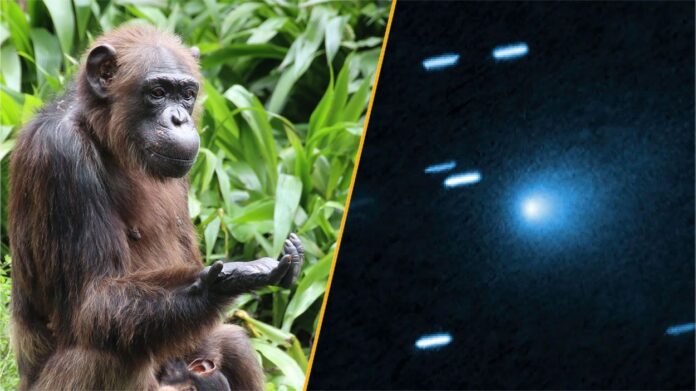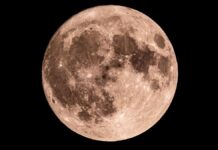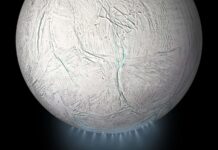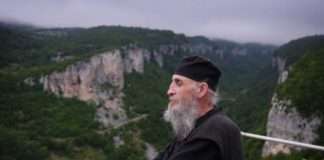This week’s science headlines cover a diverse range of discoveries and challenges, from color-shifting comets and chimpanzee cognitive abilities to the increasingly problematic issue of space junk endangering astronauts. Here’s a comprehensive overview of the most noteworthy developments.
Color-Changing Comets: A Celestial Spectacle
Two comets have captured astronomers’ attention this week, exhibiting unusual color changes. Comet 3I/ATLAS has displayed a bluish hue repeatedly since its discovery, likely caused by the potential leakage of gases like carbon monoxide or ammonia – although this remains unconfirmed. Similarly, Comet C/2025 K1 (ATLAS), facing a perilous close pass around the sun, survived and glowed with a rare golden color due to the heat generated by its proximity to our star. These events highlight the dynamic nature of comets and the complex chemical processes at play within them.
Chimpanzees: ‘Thinking About Thinking’
New research sheds light on the cognitive abilities of chimpanzees, demonstrating that they possess a degree of metacognition – the ability to think about their own thinking – allowing them to weigh evidence and adjust their decisions. Scientists created experiments where chimpanzees were presented with boxes containing treats, accompanied by clues. Importantly, when faced with conflicting information, the chimps were able to reassess their previous observations and change their choices, signifying a level of rational reasoning. This discovery suggests that chimps share a surprising level of cognitive sophistication with humans.
Astronauts Stranded by Space Debris
Earth’s growing space junk problem became strikingly apparent when a Chinese return capsule carrying three astronauts – Wang Jie, Chen Zhongrui, and Chen Don – was struck by debris while returning to Earth. This incident has forced the astronauts, who have been stationed on the Tiangong space station since April 24, to postpone their return home. Officials are investigating the damage and determining if the spacecraft is safe to fly. If not, the crew will have to return to the space station and await the next return module.
Beyond the Headlines: Facing Climate ‘Doom Loops’
Climate scientists are raising concerns about the potential for global warming to trigger a cascade of “tipping points” that could destabilize Earth’s systems. These tipping points represent thresholds beyond which changes become self-perpetuating and irreversible, potentially leading to widespread environmental chaos. Understanding and avoiding these tipping points is crucial for mitigating the worst effects of climate change.
Also in Science News
- Climate Threshold: The world is on track to exceed the 1.5°C climate threshold within the next decade, according to a recent UN report.
- Neanderthal Crayons: Evidence suggests that Neanderthals used “crayons” made from stone during the Stone Age for symbolic drawings.
- Quantum Computing Breakthrough: Scientists have unveiled Helios, a groundbreaking quantum system that represents a significant advancement in quantum computing power.
- Aging and Inflammation: A new study challenges the long-held belief that aging and inflammation are intrinsically linked.
Something for the Weekend
For those seeking longer reads, here are a few compelling articles to delve into:
- Common macro photography mistakes and how to avoid them
- A scientific explanation of what would happen if a human fell into a black hole.
- A toxicologist’s advice on when it’s safe to remove moldy parts of food.
Science in Video: A Spider Megacity
A recent study reveals an astonishing discovery in a remote Albanian-Greek cave: a sprawling spiderweb hosting an estimated 111,000 spiders. This “spider megacity,” composed of intricate funnel-shaped webs, represents the first documented instance of colonial behavior in two common spider species – the barn funnel weaver Tegenaria domestica and the sheet weaver Prinerigone vagans. The spiders thrive on a diet of non-biting midges, supported by bacteria feeding on sulfur, creating an unusual ecosystem within the dark cave.
This week’s science news underscores the incredible diversity of discoveries happening across the cosmos and our planet, while also highlighting the urgent challenges facing humanity.



























